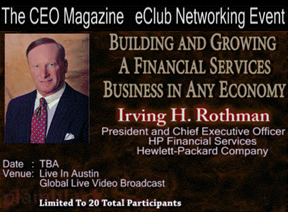You are here
- Dianna Booher |
- Small Business - Self Governance - Entrepreneurship - Leadership - Management |
- Tue, 08/22/2017 - 01:46

Leaders aim to make their mark on business operations, imprint their philosophies on their staff, leave their legacy on the organization. They hope the team will remember their leadership as unique, profitable, and pleasant. Understandable goals.
But all too often, new leaders start out with similar clichés and concepts—lines that set their staff members up for disappointment, if not downright disengagement, rather than the intended productivity boost.
Do these new-leader clichés sound familiar?
“Tell me if I’m wrong, but here’s what I’m thinking.”
While it’s admirable to ask for input, the problem is phrasing. Who wants to start off a new relationship with this response: “Well, boss, actually, here’s where you’re wrong….” Better to ask for input in these ways: “I’d like your input on a few ideas….” “Here’s what I’m thinking as a different way to handle X… Your thoughts on that issue?” “I’m about to make a couple of changes in the way we do X. Am I missing something here?”
“I’d like us to blow this up, and try to rebuild it from the ground up.”
For all our collective complaining, most of us become attached to our projects. We “own” them. Yes, we’re open to change, improvements, growth. But hearing a new leader talk about “rebuilding” implies that previous work has become worthless. Many employees consider it arrogance for a new leader to walk in and start making “changes for change’s sake” before he or she knows the what and why behind the current state of things.
Whether you’re talking about processes or products, your phrasing counts. Modify, maybe. Improve, probably. But “rebuild” will most often meet resistance.
“Let’s put everything on hold until I get a better understanding.”
What does “on hold” mean? Stop work? Stop planning? Stop funding? Stop signing contracts? Notify all departments/people related to the project? For how long? Do what in the meantime? What if “this” is my primary job at the moment? This comment sets up a major logjam, with the boss blocking workflow.
This directive creates a bottleneck while productivity decreases to a spurt here and there. Fear rears its head. The check-back directive suggests the leader’s ongoing management style: closely-held reins with little room for personal initiative and decision-making.
“Give me your wish list—as if money were no object.”
Generally tossed out during strategic planning meetings or staff retreats, this leader comment meant to start a brainstorming exercise sounds like such a generous gesture. The new leader wants input on needs—what new resources does the team need to get the job done faster or better? Tools? Equipment? Space? More people? More time?
So what’s the problem with this goodwill comment? Money is always an object—even when you have plenty of it. Even if venture capitalists have just dropped $100 million in your pocket, you’ll have to justify why one project gets funded and another doesn’t. When new leader after new leader arrives on the scene and encourages people to “dream big,” but there’s no basis for thinking the Fairy Godmother will fund such dreams, this approach becomes boring.
If the line sounds too familiar, skip it. You’ve heard it before—and so have your team members. Your communication during those first few weeks as a new leader makes a critical difference in connecting with employees and winning their trust and confidence.
Follow The Blog
Blog Categories
- Business Ops. (45)
- Editors (3)
- Entrepreneurship (196)
- Finance (25)
- Leadership (529)
Blog Authors
- Guest Blogger (835)
- Cynthia Kay (92)
- Linda Henman (78)
- Dianna Booher (46)
- Craig Ross (31)













